What is Psoriasis (Ekakushta)?
Psoriasis (Ekakushta) is a condition in which skin cells and nails are damaged, and it affects approximately 100 million people across the world. This word originated from the Greek word Psora which means "itch". It is a chronic skin disease in which skin becomes dry and raised, with rough, red areas on the skin covered with fine silvery scales.
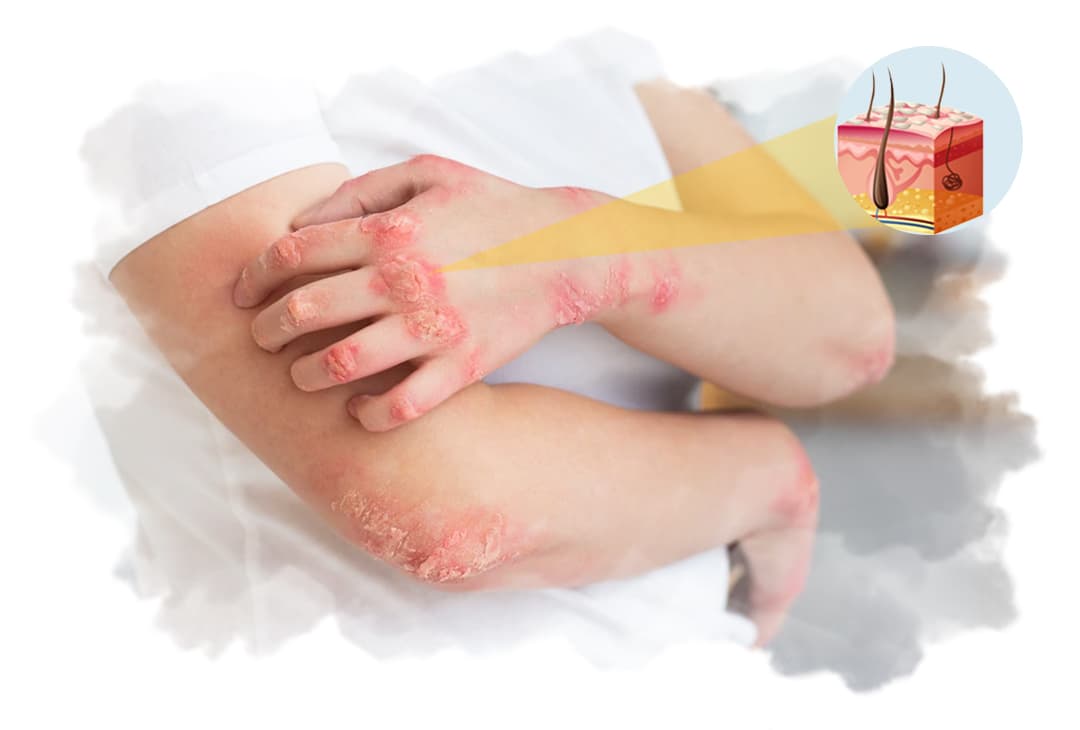
Ayurveda Perspective on Psoriasis (Ekakushta)
According to Ayurveda, Psoriasis is an autoimmune skin disease that occurs due to an imbalance of Vata Dosha and Kapha Dosha. In Ayurveda psoriasis is known as Kitibha or Ekakushta. Kustha resembles the lesions of Psoriasis. These toxins affect the tissues in the body which leads to diseases like psoriasis. Psoriasis Ayurveda treatment thus focuses on helping to remove toxins and maintain the energy balance. Ayurveda focuses on helping to remove toxins from the body.
Causes of Psoriasis
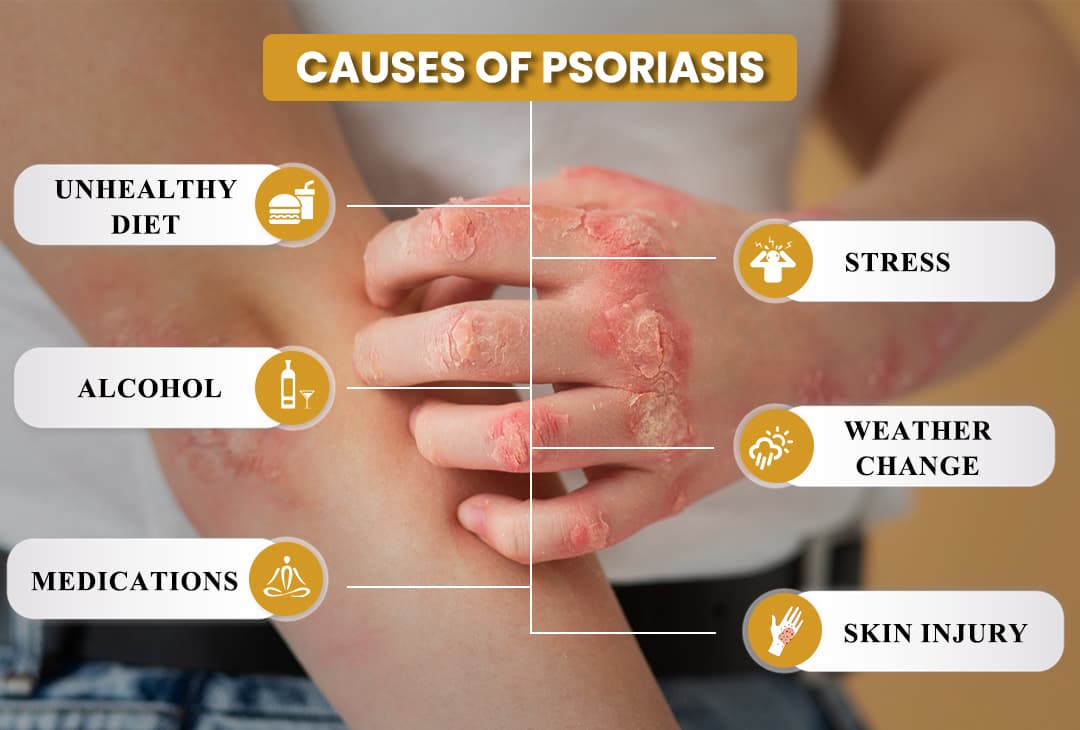
- Diet: Psoriasis can take place due to bad eating habits such as eating salty food or seafood with milk, or sour food items. Other than that heat-producing food items like black gram, sesame seeds, pepper, milk, curd, sugar, and nonvegetarian food.
- Stress: Stress can be a big trigger for psoriasis. By learning to reduce and manage stress, you can reduce stress and can see possible changes in your skin.
- Alcohol: Alcohol is a significant factor which should be avoided. Excessive intake of Alcohol can lead to the birth of Psoriasis.
- Change of Weather: Weather changes can lead to dry skin, which increases the chances of worsened psoriasis. In contrast, hot sunny weather can help control the symptoms of psoriasis in the majority of people.
- Medications: Certain medicines such as lithium which is used as a common treatment for bipolar disorder, and some beta-blockers (used for the treatment of high blood pressure, drugs used for malaria, heart disease, and some heart arrhythmias), can cause psoriasis symptoms.
- Skin Injury: Several types of skin infections and injuries like cuts, burns, bruises, bumps, vaccinations, tattoos and other infections at the site of injury can increase and lead to psoriasis.
Types of Psoriasis
There are various types of psoriasis which are as follows:
- Plaque Psoriasis: It is the most common form of psoriasis and it causes red, scaly skin patches.
- Guttate Psoriasis: This type of psoriasis is most common in children and teenagers, and usually causes red bumps and cracks.
- Pustular Psoriasis: This type of psoriasis causes pus-filled inflamed blisters on the skin that are usually painful.
- Inverse Psoriasis: It causes bright red, shiny lesions that appear in areas where skin folds.
- Erythrodermic psoriasis: It causes the red skin scales to peel off the skin which can often lead to sunburns and infections.
- Nail Psoriasis, Scalp Psoriasis: It mostly affects the nail beds and head causing dryness and detached nails.
Signs and Symptoms of Psoriasis
Signs and Symptoms of psoriasis are as follows:
- White, red, or silvery raised inflamed patches of scaly skin that occur on the whole body and folds of the body, including the genital area.
- It can cause dry or rough, cracking, flaky skin that sometimes may bleed.
- It can cause itching and burning sensation around patches.
- Pus-filled blisters, wrinkled, pitted, orange fingernails or toenails.
- Soreness around the patches.
Ayurvedic Treatments For Psoriasis (Ekakushta)
Psoriasis Ayurvedic treatment involves herbs as well as certain Ayurvedic therapies which are as follows:
Ayurvedic Herbs For Psoriasis
Ayurvedic treatment for psoriasis includes Ayurvedic herbs which prove to be effective and are as follows:
Manjistha
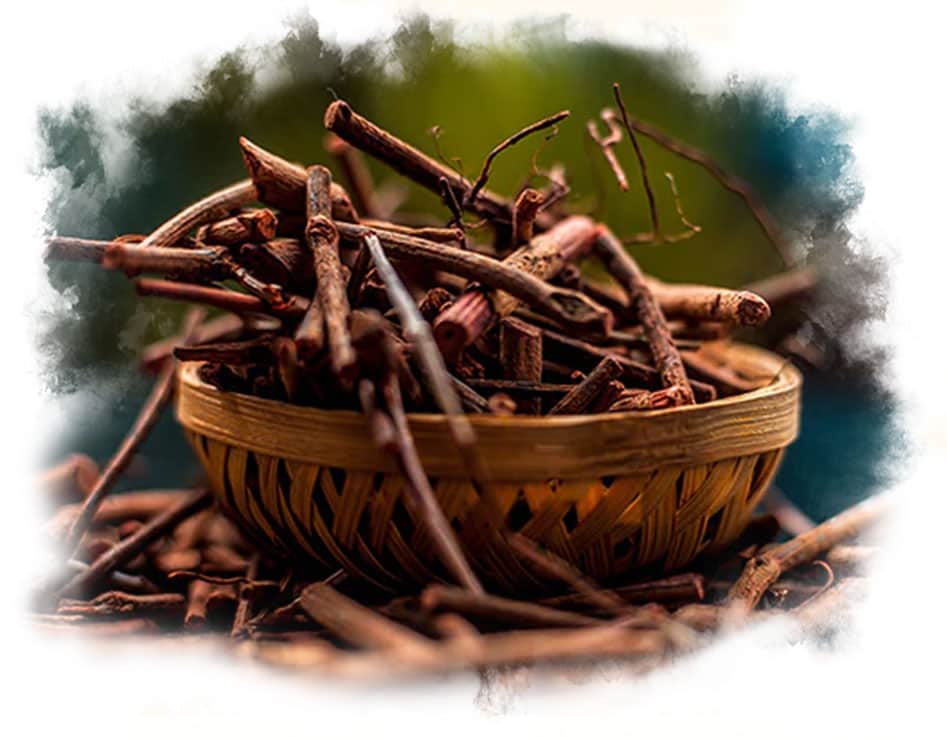
Manjistha is an effective herb extract of the root of Rubia cordifolia to manage skin disorders like psoriasis. The anti-bacterial, anti-inflammatory and antioxidant activities of Manjistha are beneficial for the skin. This is due to its balancing properties and Raktashodhak Pitta (blood purifier). It helps to purify the blood and clear Pitta dosha which is the main cause of skin disorders like psoriasis.
Turmeric

Since ancient times turmeric has been used as a healing herb for various disorders including skin and it is popular in ayurvedic medicine due to its anti-inflammatory properties. The active ingredient of turmeric is Curcumin which helps in relieving psoriasis symptoms to a great extent. The healing capabilities of turmeric can work wonders for treating psoriasis.
Cumin
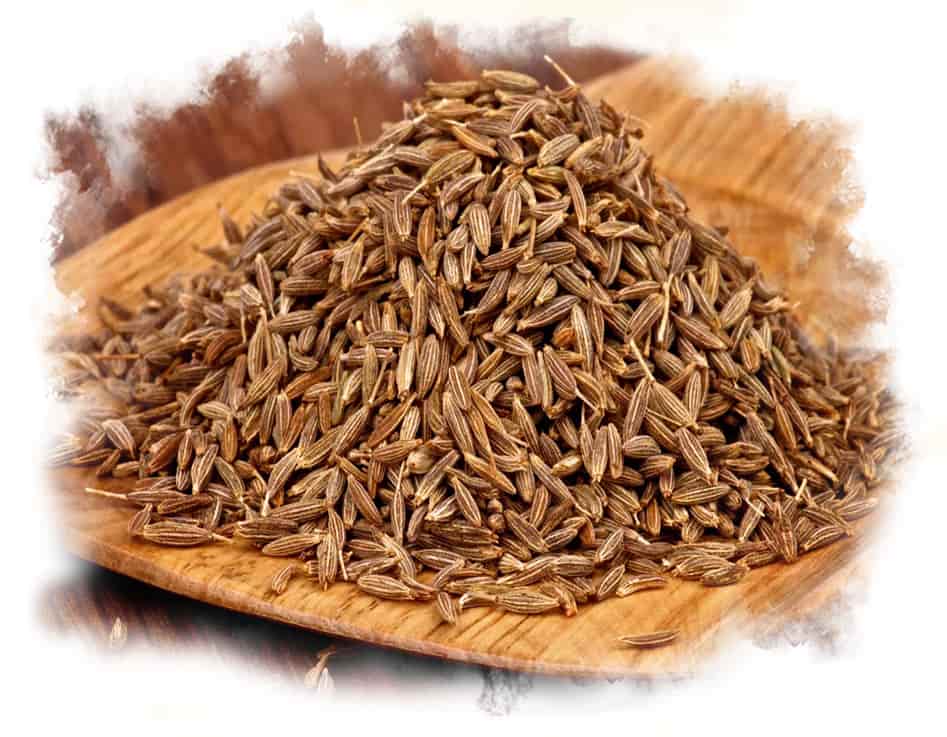
Cumin is also known as jeera and it is found in every kitchen. Cumin seeds contain naturally occurring substances called apigenin and luteolin that work as antioxidants. It has anti-inflammatory and anti-microbial properties. It can heal psoriasis effectively.
Nimba (Neem)
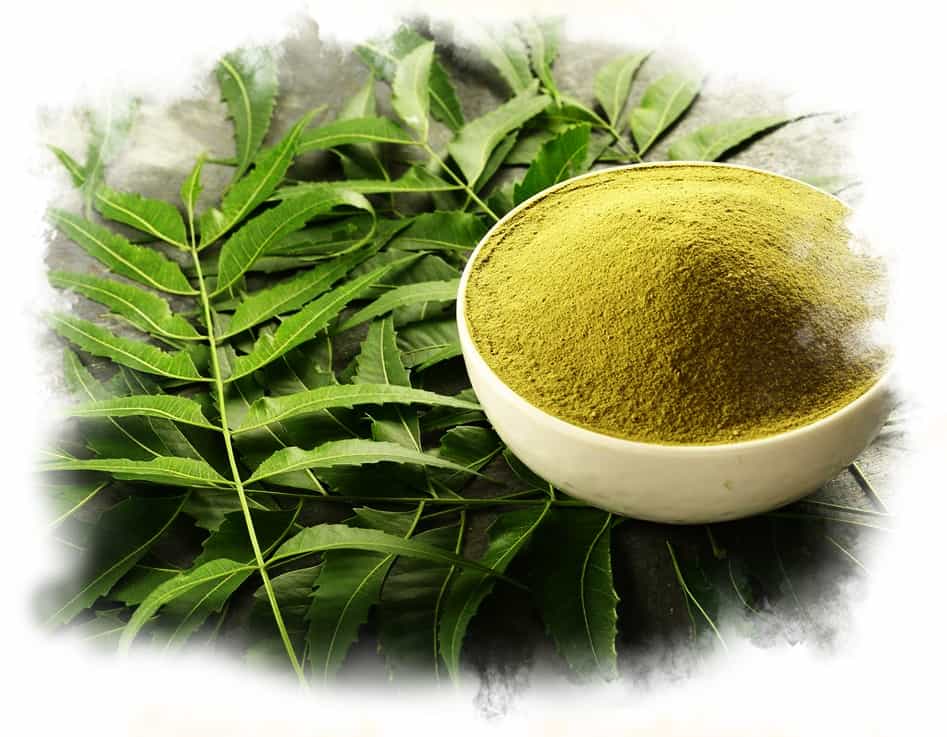
Nimba has antiseptic and anti-inflammatory properties that boost the healing of psoriasis. Neem is considered a natural blood purifier and a strong anti-bacterial as well as an anti-fungal herb. Neem is a natural immune booster. It supports increasing your body's immunity by stimulating the production of T-cells to enable your body and skin to fight against infections.
Guduchi
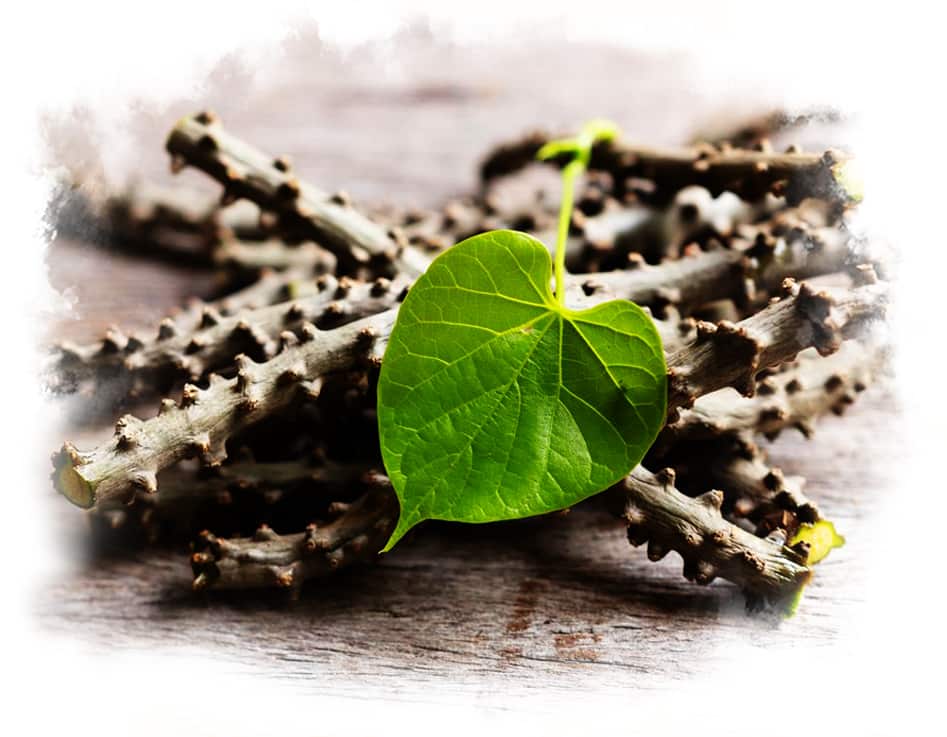
The ancient herb Guduchi is an enormously used remedy for skin conditions like psoriasis. Its antioxidant and immune-boosting properties help reduce the hyperproliferation of skin cells caused by immune dysfunction. Due to its liver-stimulating properties, it also helps clean the skin from toxins by increasing the liver's ability as a primary organ of detoxification.
Triphala
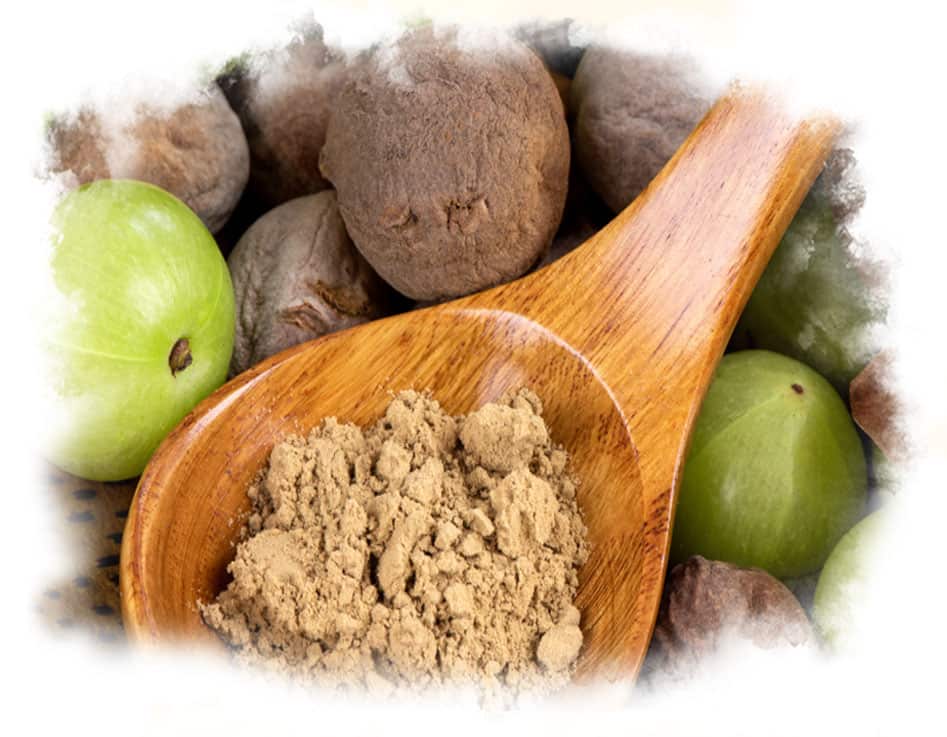
Triphala consists of three small fruits: Amla (Emblica Officinalis), Bibhitaki (Terminalia bellirica), and Haritaki (Terminalia Chebula). It acts as a laxative, an antioxidant, and an appetite stimulant. The first step towards an Ayurvedic cure for psoriasis is Body Detoxification. Triphala helps in regular bowel movements and cleanses and detoxifies the liver and the body tissues deeply without depleting the body’s natural reserves of minerals and electrolytes.
Ayurvedic Therapy For Psoriasis
There are two effective Ayurvedic therapies for psoriasis which are as follows:
Takra Dhara
Takra means buttermilk and Dhara means pouring in a continuous stream in a specified manner. It is a special Ayurvedic therapy in which medicated buttermilk is used. It is processed with medicinal ayurvedic herbs. Takra Dhara is useful for skin diseases, especially psoriasis. In Takradhara therapy, buttermilk is treated with medicinal herbs which have always been used as an external solution in the form of a thin stream.
The Benefits of Takra Dhara
For the management of psoriasis Takra Dhara is a beneficial therapy. Psoriasis has a strong connection with stress. In Takra Dhara, the continuous pouring of Medicated Buttermilk on the forehead for a particular time has a soothing influence and controls the rhythm. For psoriasis, this therapy has done wonders and it has a curative effect on the affected area of the body.
Takra Dhara affects Prana & Mana Vayu and enables healthy sleep by reducing anxiety, stress, and autoimmune disorders. These are highly responsible for skin diseases. Hence, Takra Dhara is considered one of the best treatments for psoriasis.
Panchakarma
Ayurvedic treatment for psoriasis consists of one of the most effective therapies, Panchakarma. Its aim is the purification and detoxification of the body. It also includes herbal remedies and changes in diet. A vegetarian diet (Satvik ahar) is recommended during this treatment. Panchkarma treatment includes
- Consumption of medicated ghee: Considering the Dosha type of the Psoriasis and the person, for 7 to 10 days.
- Vaman & Virechans: These are done by inducing vomiting (Vamana) and purgation (Virechana).
- Shirodhara: Detoxification is done with Medicated Oil or Buttermilk dripping overhead (Shirodhara) and pasting the entire body with a paste of medicines and mud.
- Basti (Medicated enemas): These are done for 8-10 days and internal medicines like herbal formulations, herbal concoctions and medicated ghee need to be consumed for at least 120 to 180 days.
This time duration of treatment depends upon the age, severity of psoriasis, dietary habits and lifestyle of the patient.
The Benefits of Panchakarma
Panchakarma Revitalizes the tissues of the body. It helps to balance the 3 doshas of the body as well as supports restoring metabolic power. It helps in regaining the natural glow of skin and eliminates toxins of the body and strengthens the tissues and muscles of the body. It enhances the complexion luster of the skin & immunity. It helps in the improvement of the vitality and energy of the body.
Management of Psoriasis is done with the help of herbs as well as Ayurvedic Therapies in the most natural manner without any side effects. Ayurvedic treatment for psoriasis involves a holistic approach to cure the skin disorder from its root cause and also prevent it from recurrence. Additionally, according to ayurveda stress plays an important role, so it is necessary to manage stress through Yoga and meditation.
